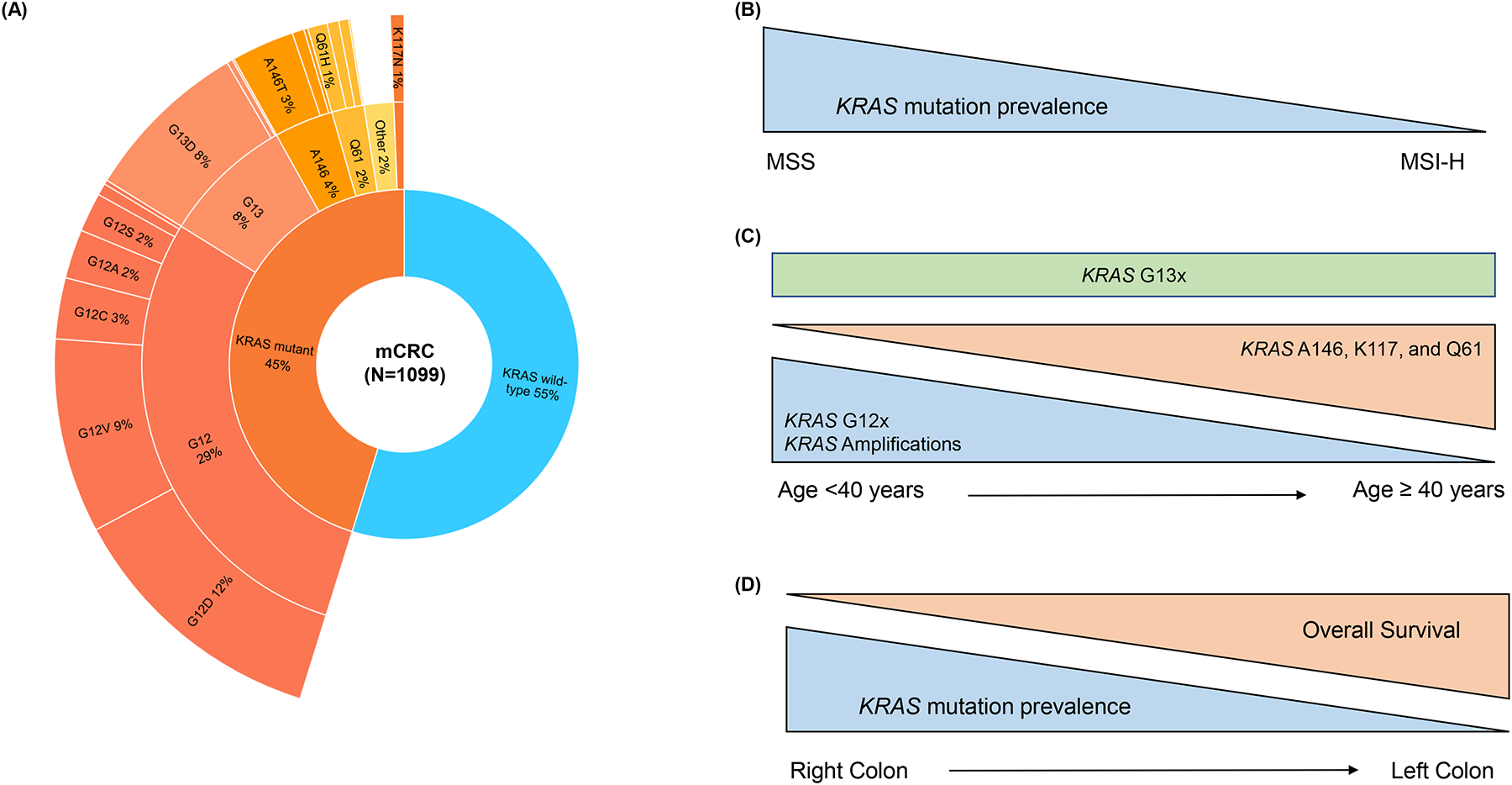Figure 1.

Frequency and clinical associations reported for KRAS alterations in metastatic colorectal cancer (mCRC)
A) Frequencies of KRAS alterations in mCRC at Memorial Sloan Kettering Cancer Center.1 Dataset was obtained through the cBioPortal for Cancer Genomics.
B) KRAS mutations are more frequent in microsatellite stable (MSS) CRC as compared to microsatellite instability-high (MSI-H) CRC.3
C) In a CRC dataset from Foundation Medicine (N = 13,336), there was higher prevalence of KRAS G12 mutations and KRAS amplifications in younger patients; more frequent KRAS A146, K117, and Q61 mutations in older patients; and no difference in KRAS G13 alterations by age. Analysis used age as a continuous variable as well as used age 40 as a stratification cut-off.3
D) Prevalence of KRAS mutations decreases sharply from right to left-sided colon cancer but starts rising again in rectal cancer.2 Right-sided CRC is independently associated with worse overall survival as compared to left-sided CRC.2 Specific KRAS mutations are also associated with poor prognosis.4
